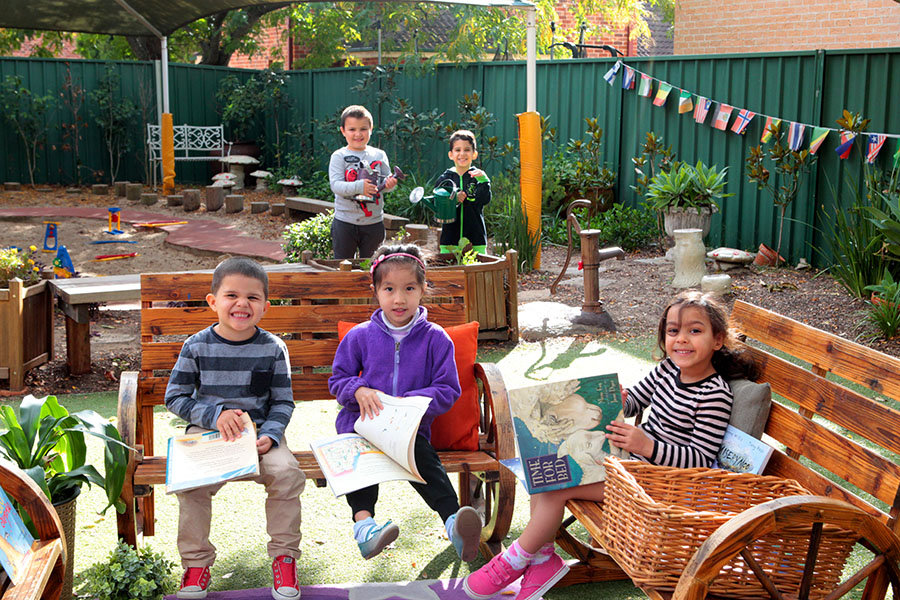
Sending your little one off to childcare is a big step. For first-time parents, it can be particularly nerve-wracking. You’d most likely be curious about what they will do all day; whether they would feel safe, and if they would be able to make friends.
You might have so many questions swirling in your head. If your child is older, you can simply ask them about their day and get a glimpse of their routine. But with younger kids, it’s not as straightforward.
You can’t just ask your little one, “So, how was your day at daycare?” and expect a detailed report. They’re more likely to just give you a gummy grin and a toy car.
That’s why knowing what to expect in childcare Liverpool or child care Warwick Farm is essential.
At Joey’s Cottage, we’re all about creating a cosy, fun space where kids can thrive. We’re here to help you feel confident in your decision and to answer all those nagging questions. After all, you deserve peace of mind.
What Your Child Does at a Childcare Centre
Arts and Crafts
Daycare isn’t just about naps and snacks. It’s a place where imaginations run wild and little fingers get busy. One of the most exciting things kids do is arts and crafts. They get to paint bright pictures, stick colourful bits of paper together, and play with all sorts of cool stuff.
It’s not just about making something pretty, though. When kids paint or cut or glue, they’re also building up their hands and fingers. This helps them get ready for bigger things, like writing and drawing.
And when they show off their creations to their friends, they celebrate each other’s talents and bond. They feel proud of what they’ve done, and they learn to cheer each other on.
Playing and Exploring the Great Outdoors
Instead of just sitting inside, children have the chance to run, jump, and explore nature. They might climb on play structures, dig in sandpits, or engage in imaginative games on the grassy fields. Being outside allows kids to enjoy fresh air while developing their physical skills.
Exploring gardens filled with flowers and plants teaches them about the world around them. They might discover insects, watch birds, or simply enjoy the feel of grass beneath their feet.
Outdoor play is also about teamwork. When they engage in activities like a game of tag or building a fort together, kids learn valuable social skills. It’s a wonderful way for them to discover their surroundings while forming friendships that often last for many years, even after they’ve left daycare.
Storytime
Storytime is a magical moment when everyone gathers to listen to tales of faraway lands and friendly creatures. The teacher reads a book, and the kids get to travel to far-off lands or meet friendly animals.
These stories help kids think deeper, ask questions, and dream big. After the story, it’s time for circle time. This is where kids get to chat and share their thoughts. They might talk about the story, or maybe they just want to tell a funny joke. It’s a chance for them to practise talking and listening, and to feel like they belong.
Learning Through Music and Movement
The kids get to sing silly songs, dance like crazy and even play little instruments. It’s a great way to burn off some energy and have a whole lot of fun.
But it’s not just about playing. When kids sing and dance, they’re also learning all sorts of things. They learn to move their bodies, count rhythms, and remember words. And when they dance and sing together, they learn to work as a team. They learn to listen to each other and follow along.
Sensory Play
Sensory play is all about using your senses to explore the world. Kids love playing with water, sand, and other cool stuff. They can splash, scoop, and feel different textures. It’s like a little science experiment, but way more fun.
They learn how things work, like how water flows or sand feels. They also learn to express themselves and use their imaginations.
Engaging their senses can help them calm down or simply have fun. Each sensory activity is a little adventure that encourages creativity and curiosity, giving them the freedom to learn in a playful way.
Getting Ready for the First Day
Here are the ways you can help both yourself and your child get ready for their first day in a childcare facility:
- Talk About What to Expect: Chat with your child about the daily routine. Let them know all the fun things they’ll do each day.
- Visit Beforehand: If you can, bring your child to Joey’s Cottage before their first day. Visiting gives you the opportunity to get a sneak peek at our routine of the day at Joey’s Cottage.
- Meet the Educators: During your visit, introduce your child to their teachers. Building a friendly connection with their caregivers is important for feeling safe.
- Encourage Some Independence: You can also practise some skills at home that they’ll use at Joey’s Cottage, like pouring their drinks and cleaning up after meals. It’ll help them feel more confident.
Extra Attention for First-Timers
We totally understand that starting daycare can make some kids feel nervous, especially when they’re adjusting to different childcare types. That’s why at Joey’s Cottage, we pay special attention to first-time kiddos.
The caring educators at our childcare facility are trained to help them feel at ease. They take the time to connect with each child, introducing them to other kids and making sure they feel included.
Our approach is all about being gentle and understanding, so every child knows they’re safe and cared for in their new home away from home.
Our Facilities and Amenities
At Joey’s Cottage, every corner is designed with your child’s joy and growth in mind. We believe that a great environment makes for happy kids, so we’ve put a lot of thought into our facilities.
Let’s take a little tour of what makes Joey’s Cottage special:
Natural Play Spaces
Our outdoor play space is a beautiful area filled with trees, plants, and lots of room to run around. We know how important it is for kids to connect with nature, and our natural play areas offer just that. Kids can climb, explore, and discover all the wonders around them.
We have edible vegetable gardens. Yes, you heard that right. Your child can dig in the dirt, plant seeds, and watch their veggies grow. It’s not just fun; it’s a fantastic way for them to learn about where food comes from. Also, they get to enjoy the delicious fruits of their labour.
We also have sand and rock pits, which are perfect for imaginative play. Children can build castles, dig tunnels, or just let their creativity soar. Our fixed play equipment, like the bridge and slide, adds to the excitement. It’s great for physical activity and helps them work on coordination while having a blast.
And when it’s hot outside, we have water play. This is a favourite among the kids. They get to splash around and have some fun while learning about the joys of water play. It’s not just refreshing; it’s an awesome sensory experience that keeps them giggling all day long.
Also, our childcare centre has an outdoor kitchen where kids can get involved in fun cooking activities. They can team up to whip up some tasty treats, learning teamwork and healthy cooking along the way.
Oh, and let’s not forget about our adorable chickens and ducks. Kids love caring for them, and it teaches them responsibility. Feeding the animals and watching them thrive helps kids connect with nature in a meaningful way.
We also have our worm farms and composting initiatives. It may sound a bit yucky, but trust us, it’s actually pretty cool. Kids learn about sustainability and the importance of looking after our planet. They become little eco-warriors in no time.
Healthy, Nutritious Meals
Good nutrition is super important for growing kids. That’s why our onsite chef is always busy all day long. They prepare healthy meals every day, including breakfast, morning tea, lunch, afternoon tea and even a late afternoon snack.
We offer a variety of meals that align with the National Health and Medical Research Council’s dietary guidelines for young children, ensuring that what they eat supports their health and energy levels.
We’re also proud to offer meals that are culturally appropriate and respectful of our diverse families. Everyone deserves to enjoy their food safely and happily, so we pay close attention to allergy management, too.
Safety Measures
We know that as a parent, your child’s safety is your top concern, and it’s ours too. We have put in place some great safety measures to keep everyone secure. Our facility is equipped with CCTV surveillance, which means we’re always keeping an eye on things to ensure a safe environment.
We also have a security door and intercom system to control who enters the building. This means you can feel confident that your child is in a secure space. Also, our onsite parking makes drop-off and pick-up super easy. You can quickly get in and out without any fuss.
At Joey’s Cottage, we’re more than just a preschool; we’re a community that cares deeply about your child’s happiness, health and safety. We can’t wait to welcome you and your little ones into our family – contact us today to learn more about our childcare centre and early education programs!






